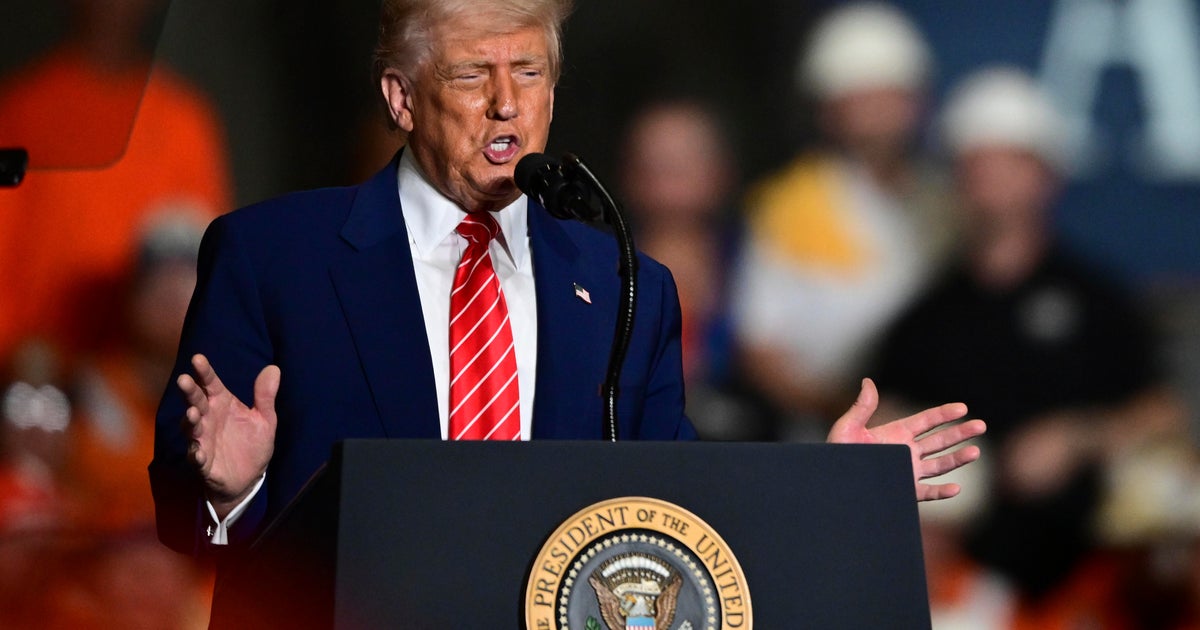
The Trump administration has returned a Guatemalan man to the United States after a judge determined he was wrongly deported without due process, his legal team told CBS News.
The man, who has gone by O.C.G. in court proceedings, landed in the United States today and made contact with lawyers representing him after he landed, said Trina Realmuto, one of his attorneys and the executive director of the National Immigration Litigation Alliance.
Last month, the Trump administration said in court filings it was working to secure a charter flight to return him, after U.S. District Judge Brian Murphy of Boston said he must be returned. This was the first high-profile case in which the Trump administration has brought back someone who was removed from the country after a judge ordered their return.
Realmuto said that she expects the man will be taken into government custody as he seeks protection from persecution via due process proceedings.
She said the man is “nervous, scared and thankful to be returned to the United States.”
O.C.G.’s attorneys argued that he has no criminal history and sought asylum in the United States after multiple violent attacks against him in his native country of Guatemala.
In March 2024, O.C.G. entered the United States illegally and was deported, according to court filings. After making it back to the United States again last year, he presented himself to Border Patrol for asylum proceedings. An immigration judge found in February 2025 that O.C.G. would face serious harm if he were sent back to Guatemala and ordered a “withholding of removal” that barred deportation back to his home country.
Two days after the immigration judge’s February decision, O.C.G. says he was placed on a bus and removed without due process to Mexico, where his attorneys said he was previously held for ransom and raped during his second attempt to get to the United States. He submitted evidence at his immigration hearing of his experiences in Mexico, and as a result the immigration judge said that O.C.G. could not be removed to a country other than Guatemala without additional due process.
After O.C.G. was sent to Mexico by the United States, Mexican authorities removed him to Guatemala, where he had to remain in hiding until his return, according to court documents.
“[The] immigration judge told O.C.G.— consistent with this Court’s understanding of the law—that he could not be removed to a country other than his native Guatemala, at least not without some additional steps in the process,” Murphy wrote in an order requiring his return. “Those necessary steps, and O.C.G.’s pleas for help, were ignored.”
Murphy had previously ordered additional fact-finding in the case, after the Trump administration submitted a declaration under oath that O.C.G. told government officials that he had no fear of being sent to Mexico. O.C.G had previously submitted a declaration to the court stating that he was told at the last minute before his removal that he was being sent to Mexico, and that he was denied a request to speak to his attorneys beforehand.
The Justice Department admitted to Murphy that there was no witness who could verify the government’s account of O.C.G.’s removal under oath and the declaration was made in error.
“The only evidence before the Court therefore is O.C.G.’s uncontroverted assertion that he was given no notice of his transfer to Mexico and no opportunity to explain why it would be dangerous to send him there,” Murphy wrote in his order mandating the man’s return.
“Defendants’ retraction of their prior sworn statement makes inexorable the already-strong conclusion that O.C.G. is likely to succeed in showing that his removal lacked any semblance of due process,” the judge added.
Realmuto said that her legal team was still working to get in touch with eight defendants in the same case who were allegedly flown without due process to East Africa, with a final destination of South Sudan. They are still currently being held in Djibouti after Murphy ordered the government to “maintain custody and control” of the migrants as they are given “reasonable fear” interviews to screen them for concerns about being harmed in a third country.
If they do not satisfy the reasonable fear standard, the government must give them at least 15 days to challenge their removal. Murphy says the men can be held either in the U.S. or abroad, as long as the government maintains custody over them.
